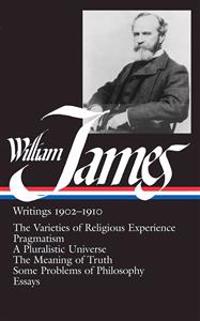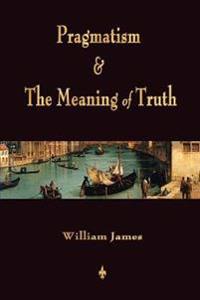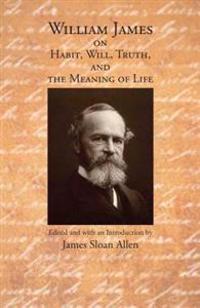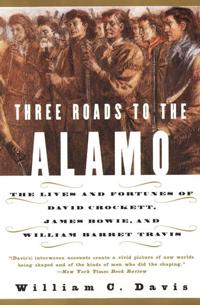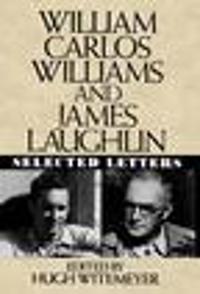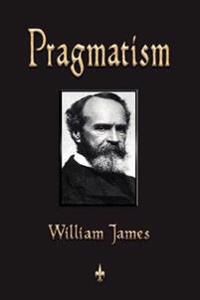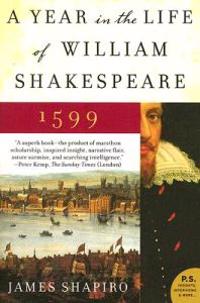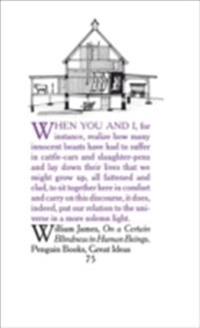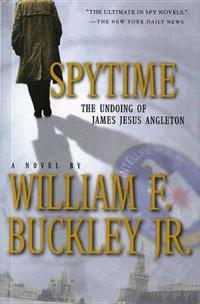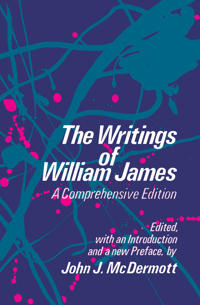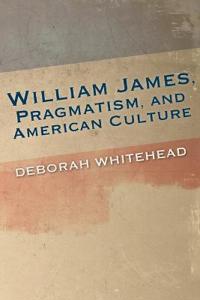Pragmatism and The Meaning of Truth (Works of William James) (Häftad)
avWilliam James
ISBN: 9781603864145 - UTGIVEN: 201104An unabridged, unaltered edition of both Pragmatism and the sequel The Meaning of Truth -
William James on Habit, Will, Truth, and the Meaning of Life (Häftad)
avJames S. Allen
ISBN: 9781929490455 - UTGIVEN: 2014-12William James, the radical modern philosopher and father of Americam psychology, found habit and will to be the secret of a good life. He elaborated this discovery into a philosophy of life that runs through his many scintillating writings, ranging from psychology and religion to pragmatism and war.[...]
Letters, Fictions, Lives: Henry James and William Dean Howells (Inbunden)
avHenry James, William D. Howells
ISBN: 9780195061192 - UTGIVEN: 1997-02-01Three Roads to the Alamo: The Lives and Fortunes of David Crockett, James Bowie, and William Barret Travis (Häftad)
avWilliam C. Davis
ISBN: 9780060930943 - UTGIVEN: 1999-04Three Roads to the Alamo is the definitive book about the lives of David Crockett, James Bowie and William Barret Travis--the legendary frontiersmen and fighters who met their destiny at the Alamo in one of the most famous and tragic battles in American history--and about what really happened in tha[...]
William Carlos Williams and James Laughlin Selected Letters (Inbunden)
avWilliam Carlos Williams
ISBN: 9780393026825 - UTGIVEN: 1989-08The letters discuss modernism, art, publishing, and the writer/editor relationship between the two men.[...]
Trial of Curiosity, The: Henry James, William James and the Challenge of Modernity (Pocket)
avRoss Posnock
ISBN: 9780195071245 - UTGIVEN: 1991-11-07The Varieties of Religious Experience (Pocket)
avWilliam James, Micky (FRW) James, Eugene (INT) Taylor
ISBN: 9780415773829 - UTGIVEN: 2008-05'Is life worth living? Yes, a thousand times yes when the world still holds such spirits as Professor James.' - Gertrude Stein A classic of American thought, William James' The Varieties of Religious Experience is an extraordinary study of human spirituality in all its forms and one of the most prof[...]
Henry James (Inbunden)
avHenry James, Jean (EDT) Strouse, William L. (EDT) Vance
ISBN: 9781883011635 - UTGIVEN: 1999-02A collection of nineteen stories from the middle period of Henry James's writing career features some of his most famous works examining the relationship between the United States and Europe, including the classic "Daisy Miller" and the satiric "Lady Barbarina."[...]
A Year in the Life of William Shakespeare: 1599 (Häftad)
avJames Shapiro
ISBN: 9780060088743 - UTGIVEN: 2006061599 was an epochal year for Shakespeare and EnglandShakespeare wrote four of his most famous plays: Henry the Fifth, Julius Caesar, As You Like It, and, most remarkably, Hamlet; Elizabethans sent off an army to crush an Irish rebellion, weathered an Armada threat from Spain, gambled on a fledgling [...]
Solo: A James Bond Novel (Inbunden)
avWilliam Boyd
ISBN: 9780062223128 - UTGIVEN: 2013-10It's 1969, and, having just celebrated his forty-fifth birthday, James Bond--British special agent 007--is summoned to headquarters to receive an unusual assignment. Zanzarim, a troubled West African nation, is being ravaged by a bitter civil war, and M directs Bond to quash the rebels threatening t[...]
Principles And Practices Of Interconnection Networks (Inbunden)
avWilliam James Dally, Brian Patrick Towles
ISBN: 9780122007514 - UTGIVEN: 2004-01-01One of the challenges faced by designers of digital systems is optimizing the communication and interconnection between system components. This work offers a presentation of the basic principles of interconnection network design. It incorporates hardware-level descriptions of concepts, allowing a de[...]
The Varieties of Religious Experience (Storpocket)
avWilliam James
ISBN: 9780140390346 - UTGIVEN: 198304Standing at the crossroads of psychology and religion, this catalyzing work applied the scientific method to a field abounding in abstract theory. William James believed that individual religious experiences, rather than the precepts of organized religions, were the backbone of the world's religious[...]
Pragmatism (Storpocket)
avWilliam James
ISBN: 9780140437355 - UTGIVEN: 2000-08The writings of William James represent one of America's most original contributions to the history of ideas. Ranging from philosophy and psychology to religion and politics, James composed the most engaging formulation of American pragmatism. "Pragmatism" grew out of a set of lectures and the full [...]
On a Certain Blindness in Human Beings (Häftad)
avWilliam James
ISBN: 9780141043944 - UTGIVEN: 200908William James' strong beliefs in a pragmatic theory of truth - that truth is only as relevant as its effect on us - lead to these absorbing essays on fact and belief. Within them is a fascinating theory of reality that suggests nothing is truly 'real' without examination through human empathy and ex[...]
Ghost Hunters: William James and the Search for Scientific Proof of Life After Death (häftad)
ISBN: 9780143038955 - UTGIVEN: 2007-06Traces how the respected psychologist brother of Henry James announced his belief in the paranormal at the end of the nineteenth century and set out to gather scientific data proving the existence of ghosts, an endeavor in which he formed the American Society for Psychical Research along with contem[...]
Spytime: The Undoing of James Jesus Angleton (Häftad)
avWilliam F., JR. Buckley
ISBN: 9780156011242 - UTGIVEN: 200106James Jesus Angleton was an enigma, a secretive man whose power was at its peak during the height of the Cold War. Founder of U.S. counter-intelligence, hunter of moles and foes of America, his name has become synonymous with skulduggery and subterfuge. Angleton pursued his enemies, real and imagine[...]
Submitting To Freedom: The Religious Vision Of William James (Inbunden)
avBennett Ramsey
ISBN: 9780195074260 - UTGIVEN: 1993-01-01The Varieties of Religious Experience (Häftad)
avWilliam James
ISBN: 9780199691647 - UTGIVEN: 2012-06'By their fruits ye shall know them, not by their roots.' The Varieties of Religious Experience (1902) is William James's classic survey of religious belief in its most personal, and often its most heterodox, aspects. Asking questions such as how we define evil to ourselves, the difference between[...]
Solo: A James Bond Novel (Häftad)
avWilliam Boyd
ISBN: 9780224097482 - UTGIVEN: 2013-09-231969. A veteran secret agent. A single mission. A licence to kill. James Bond returns.
The Writings (Häftad)
avWilliam James
ISBN: 9780226391885 - UTGIVEN: 197801Autobiographical, philosophical, and scientific writings of the nineteenth-century scholar demonstrate his relevance to the intellectual trends of modern thought[...]
Task Centered Practice (Inbunden)
avWilliam James Reid, A. L. Epstein
ISBN: 9780231040723 - UTGIVEN: 1977-01-01William James, Pragmatism, and American Culture (häftad)
ISBN: 9780253018229 - UTGIVEN: 2016-01William James, Pragmatism, and American Culture focuses on the work of William James and the relationship between the development of pragmatism and its historical, cultural, and political roots in 19th-century America. Deborah Whitehead reads pragmatism through the intersecting themes of narrative, [...]

